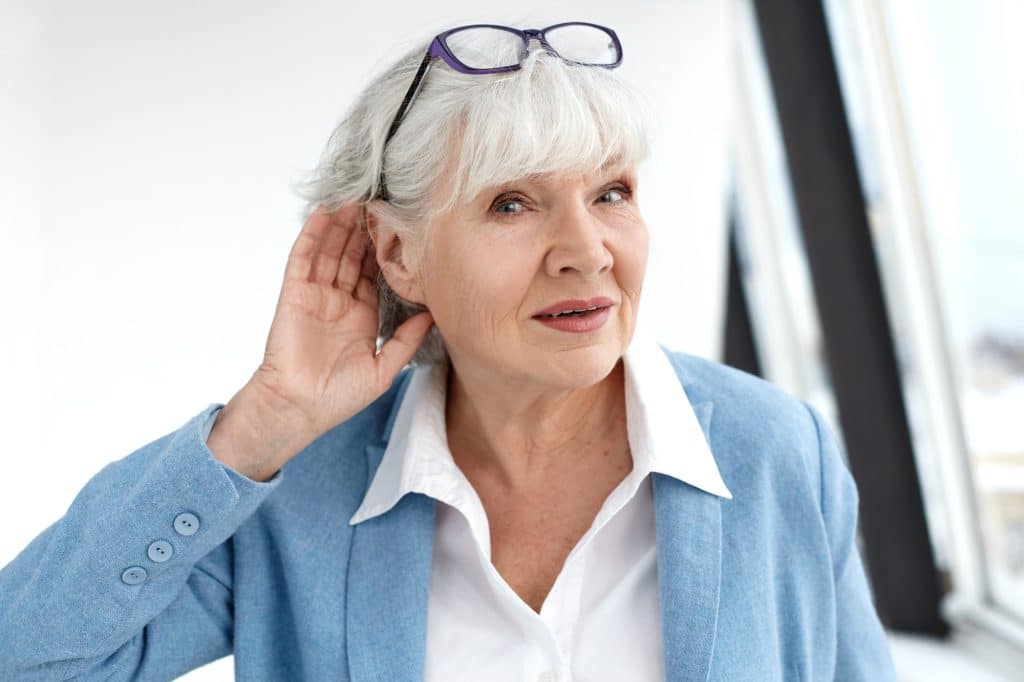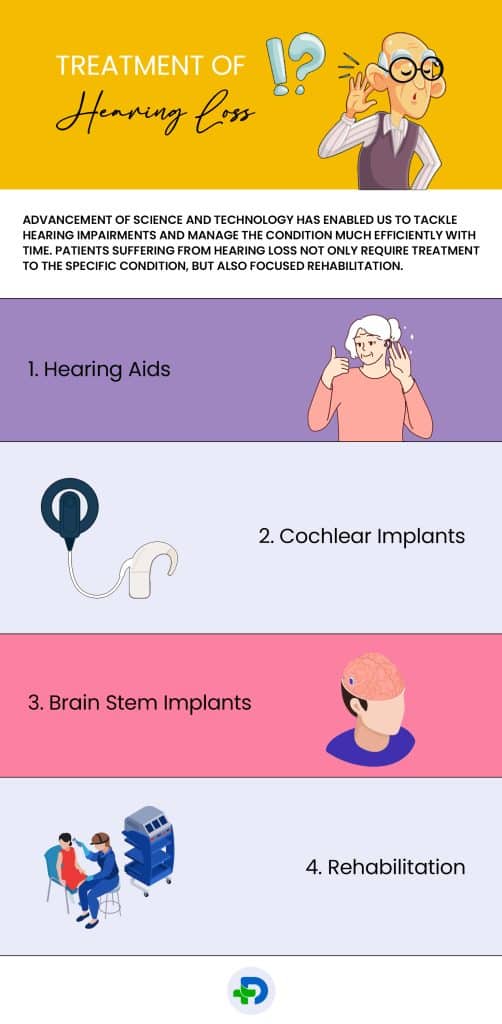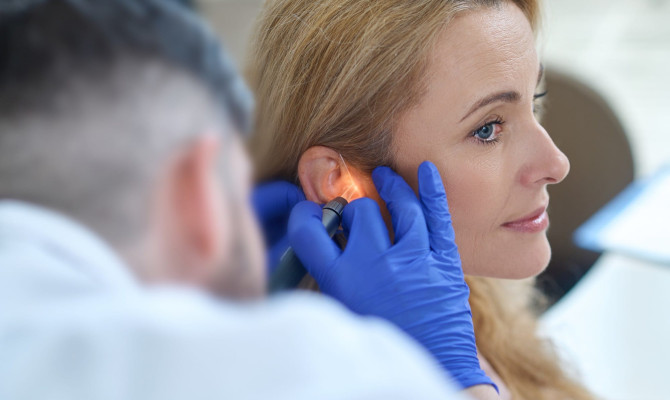Hearing loss : Classification, Symptoms, and Treatment

- Hearing Loss
- 16 Aug 2023
Overview
Hearing loss
Being ‘Hard of Hearing’ could lead you to miss out some of the most exciting updates of your life. The tragedy does not end hear, your capability to hear also affects your ability to speak, which becomes worse with time. The good thing is, in most of the cases it will not come to you as a surprise. However, it is also important to understand that, there is a difference between ‘heard of hearing’ and ‘deafness’. If a person’s hearing abilities fall below those of someone with normal hearing, which is defined as having hearing thresholds of 20 dB or higher in both ears, they are said to have hearing loss.1Overview| Researched based study from Who.int

Prevalence
Prevalence of hearing loss
- WHO, predicts there will be around 700 million people experiencing some degree of hearing impairment by the year 2050, which resembles are rate of 1 in every Moreover, around a billion young adults are at risk of unavoidable hearing loss due to unhealthy hearing practices. These impairments are suspected to be irreversible as well.
- It has been observed most of the people suffering from ‘disabling’ hear loss belongs to countries with lower per capita income. People can hear sounds from 25 to 30 Decibels. ‘Disabling Hear Loss’ is referred to a condition when the hearing impairment is more than 35 decibels.
- Age plays a very important role in cases of hearing loss, as with age the prevalence of hearing loss may increase and recovery rate decreased.1Prevalence| Researched based study from Who.int
Classification
Types of Hearing loss
Hearing loss could be classified in various ways. It could be classified according to;
- Pathological Origin
- Area of anatomical affection
- Severity
Pathological Origin
According to the pathophysiological origin ‘Hearing Loss’ could be divided in 3 Sub-types.
- Conductive Hearing Loss: This involves a mechanical blockage in the ear canal, due to which sound waves cannot propagate properly.
- Sensorineural Hearing Loss: This involves any defect or aberration in the neural pathway for ear.
- Mixed: This sub type includes component of both ‘Conductive Hearing Loss’ and ‘Sensorineural Hearing Loss’
Area of Anatomical Affection
According to the affected anatomical area, ‘Hearing Loss’ could be divided in 3 Sub-types.
- External ear
- Middle ear
- Internal ear
Severity of affection
According to the severity of affection, ‘Hearing Loss’ could be classified in 4 types.
- Mild: Only soft sounds are heard with difficulty.
- Moderate: Not only soft but also sounds in normal volumes are difficult to hear.
- Severe: Sounds of normal volume level becomes almost imperceptible, louder sounds are could be heard.
- Profound: This involves almost complete hearing loss. It could be attributed to the category of deafness. People with such a degree of hearing impairment communicates with different type of Sign Language. These categories are presented in various combinations with each other 1Classification| Researched based study from Who.int , 2Classification| Researched based study from Semanticscholar.org , 3Classification| Researched based study from Mayoclinic.org
Causes
Causes of Hearing Loss
To understand the possible causes of hearing loss, we also need to understand the fundamental mechanism of how the sound wave travels our ear.
- Once the sound wave reaches the auricle, it passes through the external auditory canal (EAC). This causes vibration in the tympanic membrane.
- The vibration propagates through the ossicles to the cochlea.
- Hair cells inside the cochlea stimulates the eighth cranial nerve transferring the stimuli to the brain.
- It is further processed in the cerebral cortex of brain, which includes comprehension of language. Any derangement in this process leads to impaired hearing.
Keeping the underlying pathophysiology; causes of conductive hearing loss are
- Infection inside ear causing perforation of ear drum.
- Allergic reaction inside ear
- Swimmer’s ear
- Wax inside the ear
- Enlodgment of any foreign object inside ear
- Benign tumors
- Scarring inside the ear canal due to chronic infections4Causes| Researched based study from Nlm.nih.gov
In case of Sensorineural Hearing Loss
- Congenital abnormality
- Senile degeneration
- Impact from loud noise
- Traumatic injury of head and skull
- Acoustic neuroma, which is a benign tumor growing over the ‘Vestibular Cochlear Nerve’.
- Meniere’s disease, along with hearing it also affects balance4Causes| Researched based study from Nlm.nih.gov
- Infections like Measles, Mumps, Scarlet fever and Meningitis can also lead to hearing loss.
- Drug Mediated; it has been observed that there are over 200 over the counter medicines that can cause hearing loss. This property is known as Ototoxicity of a medicine.
In scenarios where the underlying pathology is mixed in nature, the causes overlap with each other.4Causes| Researched based study from Nlm.nih.gov
Symptoms
Symptoms of hearing loss
Most of the times, hearing loss would have a gradual onset. It presents itself with certain subjective and objective symptoms like 5Symptoms| Researched based study from Nhs.uk
- Difficulty in hearing. This is the most common symptom encountered in a case of hearing loss. The person becomes unable to understand words which is clear to everyone else, especially in presence of any other noise.
- Due to inability to listen properly, the person makes multiple requests to repeat words.
- Preferring louder volumes than usual, when listening to music or watching television.
- Telephonic conversations become real difficult.
- The person tends to be lost between conversations, as they are unable to keep up.
- A conversation becomes very tiring, and focusing becomes even more difficult.
Apart from these, a case of ‘Hearing Loss’ is almost always associated with symptoms of the underlying pathophysiology.
- Infection: Infective origin will always include pain, feeling of pressure and discharge from ear.
- Ear wax: when there is an accumulation of ear wax, there will be feeling of blockage and itching sensation inside ear.
- Perforated eardrum: In case of a perforated eardrum, whenever there is a change in pressure gradient or exposure to sudden loud noise, it will be followed by sudden hearing loss and buzzing sensation inside ear.
- Meniere’s disease: Meniere’s disease will always include vertigo, dizziness and tinnitus.
Diagnosis
Screening and Diagnosis of hearing loss
Ability to hear, is one of our special sensory modalities. An active approach should always be adopted to diagnose any hearing impairment and screen it before setting in whenever possible. An auditory screening procedure could be performed as well in new born babies to detect any potential hearing defect 6Diagnosis| Researched based study from Cdc.gov
Popular measures to diagnose, a possible hearing defect;
- Audiometry or a Behavioral Audio metric Evaluation.
- Oto-acoustic emission (OAE)
- Auditory Brain stem Response
Treatment

Treatment of Hearing loss
Advancement of science and technology has enabled us to tackle hearing impairments and manage the condition much efficiently with time. Patients suffering from hearing loss not only require treatment to the specific condition, but also focused rehabilitation.
Hearing Aids
- Either conductive or sensorineural hearing loss, hearing aids are the most popular, simple yet very effective way of managing hearing loss. The machine amplifies the sound waves at the level of patients comfort.
- Modern devices are also pretty presentable, so that the patient does not experience any kind social awkwardness, and enjoy life at the fullest.
Cochlear Implants
- These are invasive measures in cases which are much more severe.
- Multiple electrodes are being implanted inside cochlea. It sends electrical stimuli directly to auditory nerves. It has been noticed that, with the help of cochlear implants patients can perceive words without resorting to lip-reading, and can also use telephone.7Treatment| Researched based study from MSDManuals.com
Brain Stem Implants
- Patients, whose acoustic nerve has been damaged irreversibly could be helped with Brain Stem Implants. As an example, injury leading to bilateral fracture of base of the skull or a neurofibromatosis may result in such kind of damage.
- There are certain congenital anomalies also noticed, where children are born without an auditory nerve. The mechanism of the implant resembles to the cochlear implant to certain degree.
Rehabilitation
- Audiologic rehabilitation helps people to relearn and reacclimatize with the skill of hearing that they had lost.
- It provides you the environment to establish effective communication and puts you back in the mainstream world.
- In cases where certain improvisation is required assisted listening and visual cues are also integrated in the rehabilitation treatment. Such rehabilitation treatments are imparted either in group or at an individual level.
- Assisted listening includes systems like TV listening device, Personal FM system, Microphones, and Telephone amplifiers.
- Visual Cues are methodical ways of what we loosely call ‘lip-reading’. Here you learn the skill of speech reading. Close observation and practice can enable you to decipher how sounds look like along with the help of body language and expression.
- Rehabilitation at the end is all about will power, practice and persistence 8Treatment| Researched based study from Asha.org
Bottom line
The bottom line
Sounds are magical, the ability to perceive them is a blessing, we should all try to preserve. Where, certain conventional ways of this perception get hindered, modern science have found a way to aid that in various ways and provide alternative paths. However, it may not be similar to our innate ability to listen, but practice and perseverance can make it almost perfect.
Any feedback on this article?
 This Articles content was accurate
This Articles content was accurate Very Informative Article
Very Informative Article I have a question or a comment
I have a question or a comment
 This article contains inaccurate content
This article contains inaccurate content This article was not helpful
This article was not helpful I have a question or a comment
I have a question or a comment
We appreciate your helpful feedback!
Checkout our social pages
References
-
World Health Organization
Deafness and hearing loss | Overview | Prevalence
-
Semantic Scholar
Classification of Hearing Loss | Classification
-
Mayo Clinic
Hearing loss | Classification
-
National Library of Medicine
Differential diagnosis and treatment of hearing loss | Causes
-
National Health Service
Hearing loss | Symptoms
-
Centers for Disease Control and Prevention
Screening and Diagnosis of Hearing Loss | Diagnosis
-
MSD Manual
Cochlear Implant | Treatment
-
American Speech-Language-Hearing Association
ASHA / Public / Hearing and Balance / Adult Audiologic (Hearing) Rehabilitation | Treatment




































